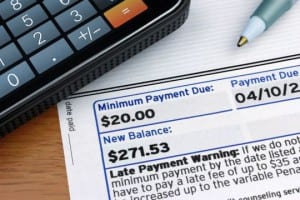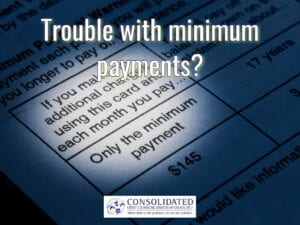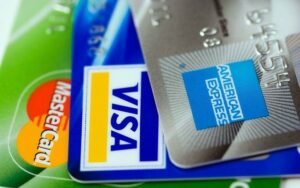Making your credit card payments on time is a step in the right direction to paying down your debt and improving your credit score. However, if you are only making the minimum payments, you are starting to climb up a slippery slope that will lead to long-term debt, hefty interest charges and potential debt trouble.

The problem with minimum payments is that you only chip away at the debt and may continue to grow as you use the card. And the longer that balance remains unpaid the more you pay as it accumulates interest.
“If you use your credit card to purchase an item and then don’t pay it off in full before interest begins to accrue, you are paying more for the same item than if you paid for it in cash, or if you paid it off before the balance is due. It also means you are staying in debt longer and paying more over that time period. When you think about it, that doesn’t make a lot of sense financially,” says Jeff Schwartz executive director, Consolidated Credit Canada.
“Next time you are at the cash register, reaching for your credit card, consider if you would still buy the item if it if the price was double or triple. When you factor in interest over years, that’s effectively what you are doing. That’s a compelling reason to stop the cycle, and pay down your debt,” says Schwartz.
Still, thinking that you can get by on the minimum? You may want to rethink your strategy, and here is why.
Why the minimum?
Do you make your minimum payment because it’s all you can afford, or do you make your minimum payment because that’s what is required of you? Sometimes people use a minimum payment method to try to get more mileage out of their budgets, cash-flow wise.
If you are only making the minimum payment because that’s what your bill says, it won’t be long until you fall into the ‘that’s all you can afford’ category. That’s because every month, as that interest snowballs and you spend more, your balance will get bigger and bigger.
Take steps to pay that balance down more quickly and consider thinking about a cash-only lifestyle.
How does it work?
When you make a purchase, you have a grace period, meaning if you pay the balance off before the current month’s due date, you won’t be charged interest. The same can’t be said for cash advances, which start to accrue immediately. And another sore point? Cash advances are sometimes subject to a higher interest rate than straight purchases. This information will be listed on your credit card statement, so check it out.
Your minimum payment is based on a percentage of the amount that you owe, not a fixed amount. That means that the payment amount will continue to grow alongside the debt. And if your income isn’t growing to match, your household budget will be stretched until it breaks.
Credit score
You may be thinking that if you pay your bills on time, you’re taking active steps towards building up your credit score. But did you know that if you continue to only make minimum payments and you max out your cards, your score could actually go down?
Are you living paycheque to paycheque, only to make minimum payments? Restructuring your debt can help you stretch your income further to attack those debts more aggressively. Our trained credit counsellors can help.




